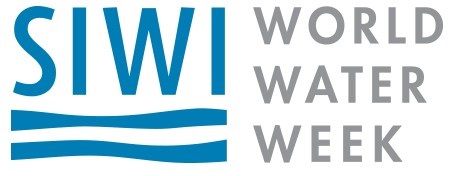Stockholm World Water Week 2019
Date: 25/08/2019 – 30/08/2019
Venue: Stockholm, Sweden

We are looking forward to joining this year’s Stockholm World Water Week, with the theme- Water for society: Including all. We will be participating in a few key events to highlight on aspects of our works with partners that ensure inclusion.
Events as part of Water, Peace and Security Partnership
The Water, Peace and Security partnership is a collaboration among an expanding group of organisations supported by The Netherlands Ministry of Foreign Affairs. Current partners include: IHE Delft (lead), World Resources Institute, Deltares, The Hague Centre for Strategic Studies, Wetlands International, International Alert, Oregon State University, and Pacific Institute. We will have two events and one unofficial networking reception.
Sunday, 25th of August
Session: “Strategies for Reducing Conflicts over Water Resources”
Time: 9:00 -10:30
Room: M6
Summary: The session will offer an update on new data-sets available on water-related conflicts, analyses of those data, a set of detailed regional case studies, policy strategies for improving cooperation over water and reducing the risk of violence, and work with policymakers at national and international levels to increase awareness of these challenges. Karounga Keita, Director, Wetlands International Mali will be speaking at this session.
Download the programme leaflet here.
Tuesday, 27th August
The Water, Peace and Security consortium networking reception
Time: 17:30 – 19:00
Place: Dutch Pavilion
Summary: The reception provides experts like you with an opportunity to network and informally discuss the links between water resources and security, water-related security challenges and ways to address them through coherent and integrated policy choices.
Download the programme leaflet here.
Thursday, 29th of August
Session: “Analytical tools for identifying water conflict risks”
Time: 9:00 -10:30
Room: M4
Summary: This session will discuss how early warning tools can contribute to better policy responses for preventing and mitigating water conflict risks. Bringing experts from the foreign, defence, development, disaster risk and water communities together, its interactive format will facilitate discussion with the audience on ways to identify and minimise water conflict risks.
Download the programme leaflet here.
Event as part of Watershed programme
Watershed empowering citizens programme, a strategic partnership between the Dutch Ministry of Foreign Affairs (in particular the IGG department, DSO and relevant embassies) and IRC, Simavi, Wetlands International and Akvo. The partnership will have one session on social inclusion. There will also be a booth within Dutch Pavilion where the partners will showcase their work.
Sunday, 25 August
Session: Including all: participatory approaches in water governance and programmes
Time: 09:00 – 10.30
Room: L9
Summary: Inclusive participatory processes and programmes, when adequately implemented, have the potential to give voice to users who have historically been left-out of public decision-making. However, if not designed to be intentionally inclusive, these processes may generate harmful impacts and perpetuate inequalities among societies. The event will include a speech calling attention to trends and innovative approaches related to inclusive governance and case studies, highlighting different aspects of inclusive participation as well as approaches and tools to integrate social inclusion in different phases of a programme cycle.
Others
Thursday 29 August
Session: Locking Carbon in a Water Vault: Wetlands as ecosystem-based mitigation
Time: 14:00-15:30
Room: L11
Summary: Are wetlands a source of carbon or a carbon sink with hydrological connectivity? What could be their role in policy development around mitigation and sequestration? Why have wetlands been ignored in climate change policy at the national and international level when they are crucial to many people’s livelihoods and basic needs–especially of the rural poor–on a local level? How could wetlands be protected and promoted in NDC discussions and national GHG inventories and how could examples of wetlands work done locally, nationally, and internationally advance policy development that includes wetlands? These are the types of questions addressed in this session that examines the work-to-date on wetlands, the state of both the science and policy, and credible examples of effective wetlands conservation and expansion.
Convenors: Aga Khan Foundation | Alliance for Global Water Adaptation | Deutsche Gesellschaft für Internationale Zusammenarbeit | Federal Ministry for Economic Cooperation and Development, Germany | HSBC | International Union for Conservation of Nature | Ramsar Convention on Wetlands | Wetlands International | Wildfowl and Wetlands Trust
